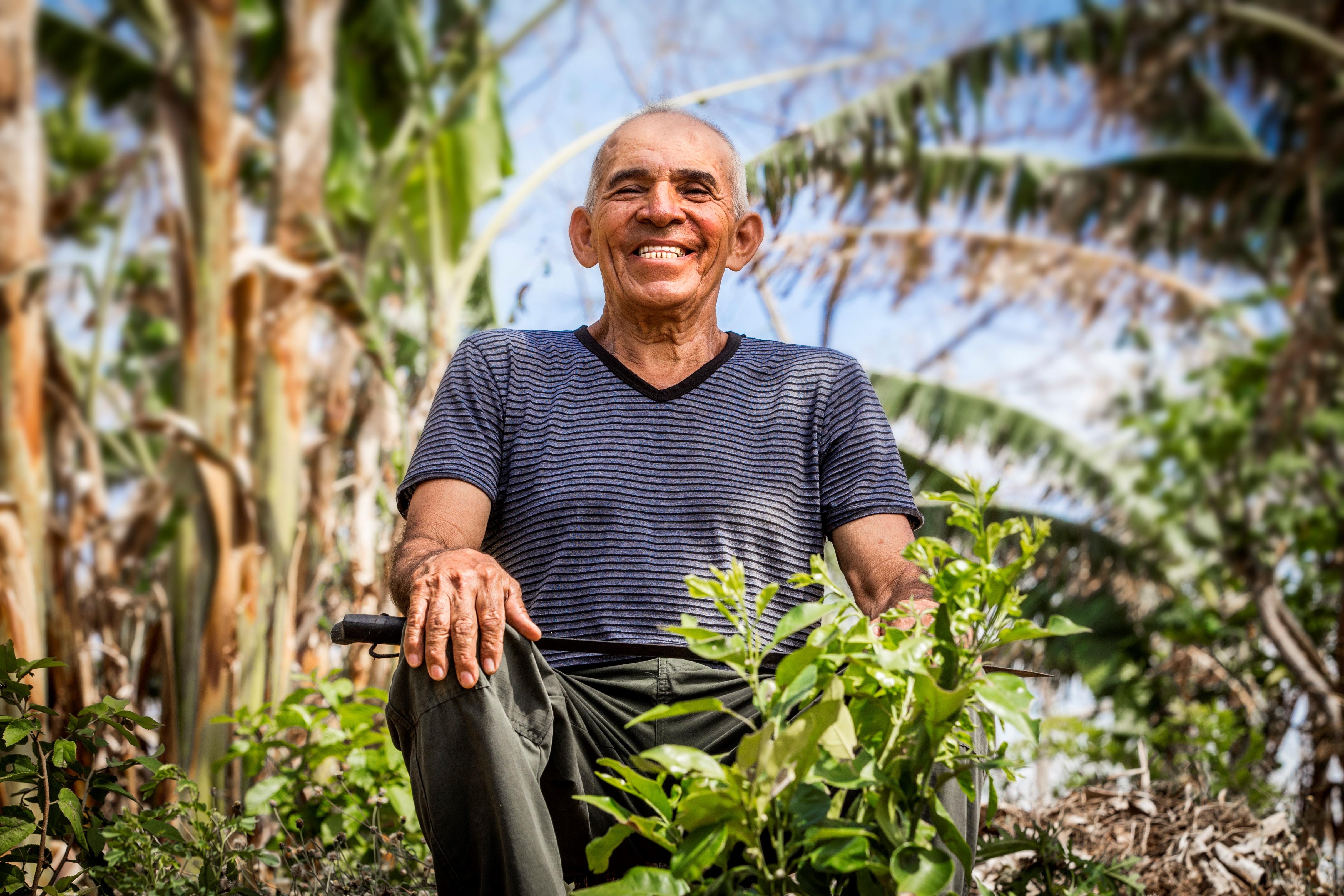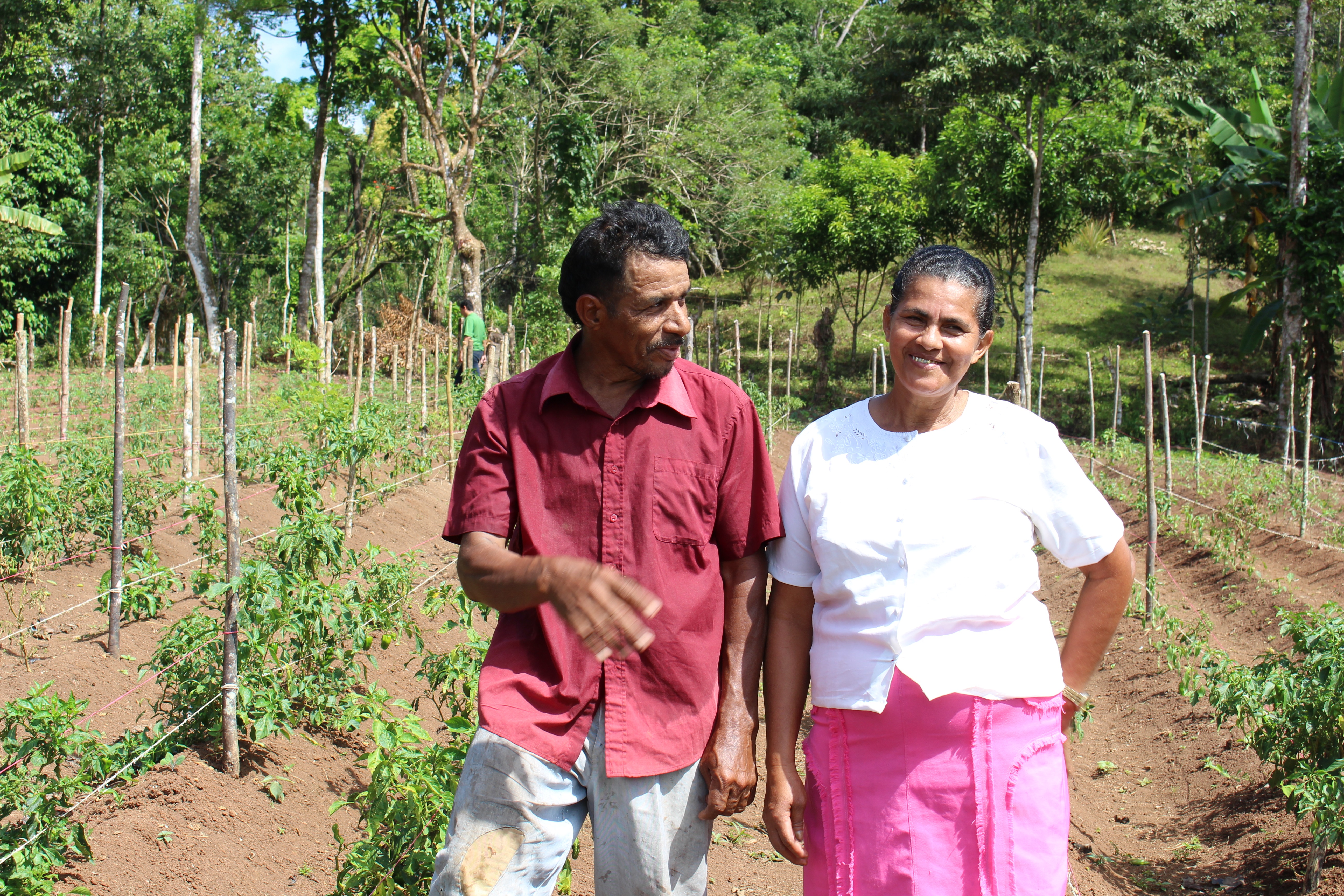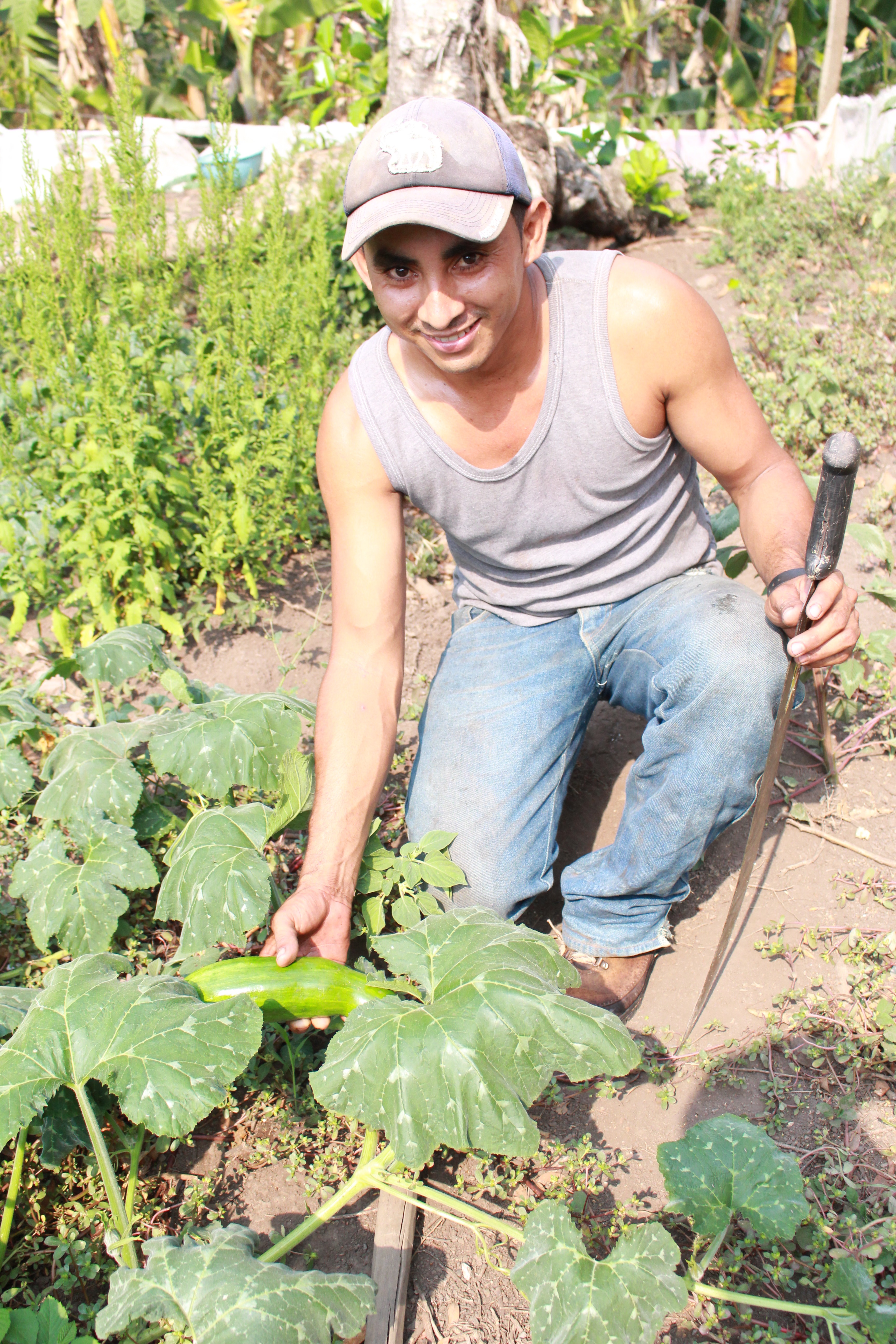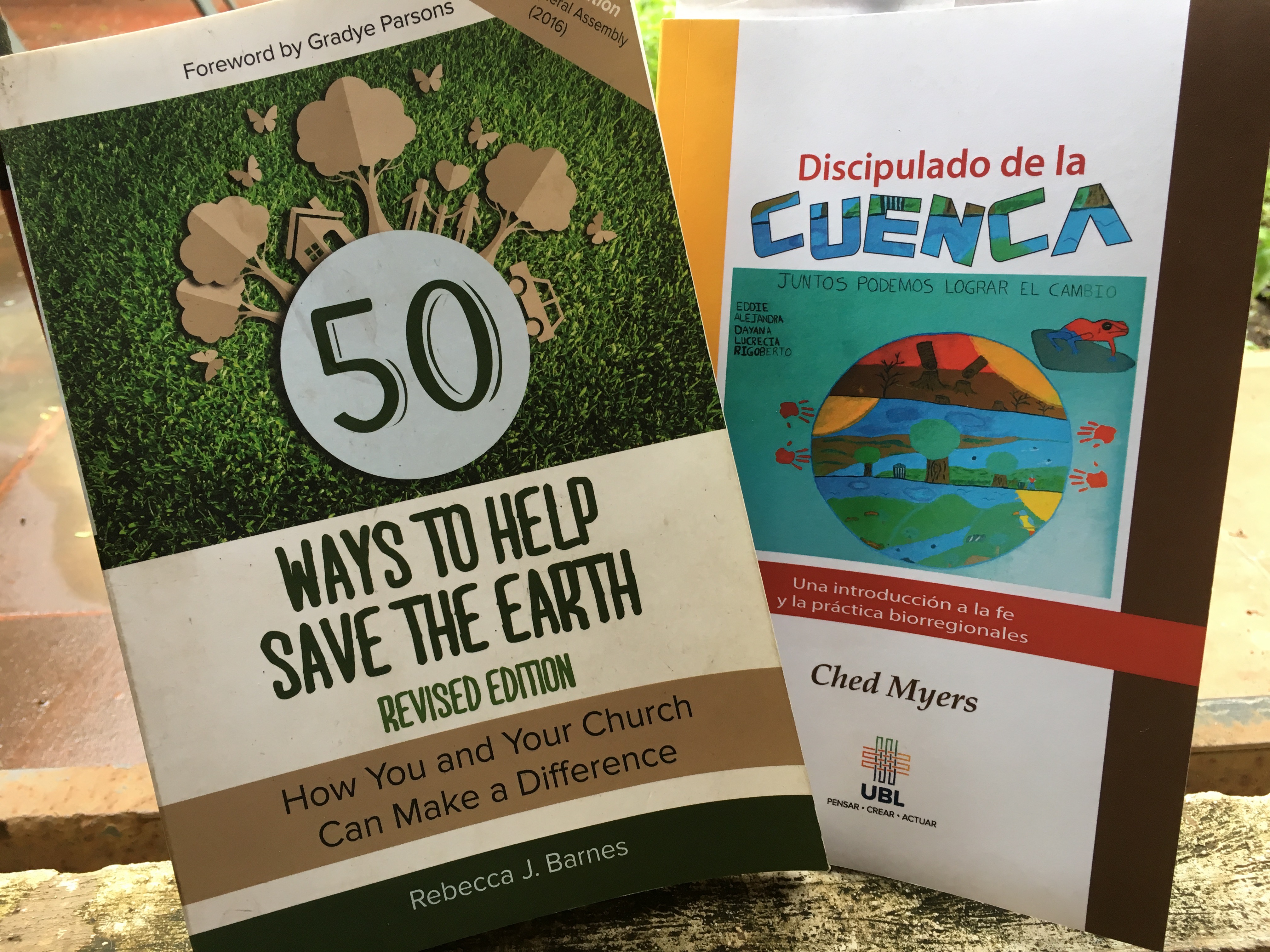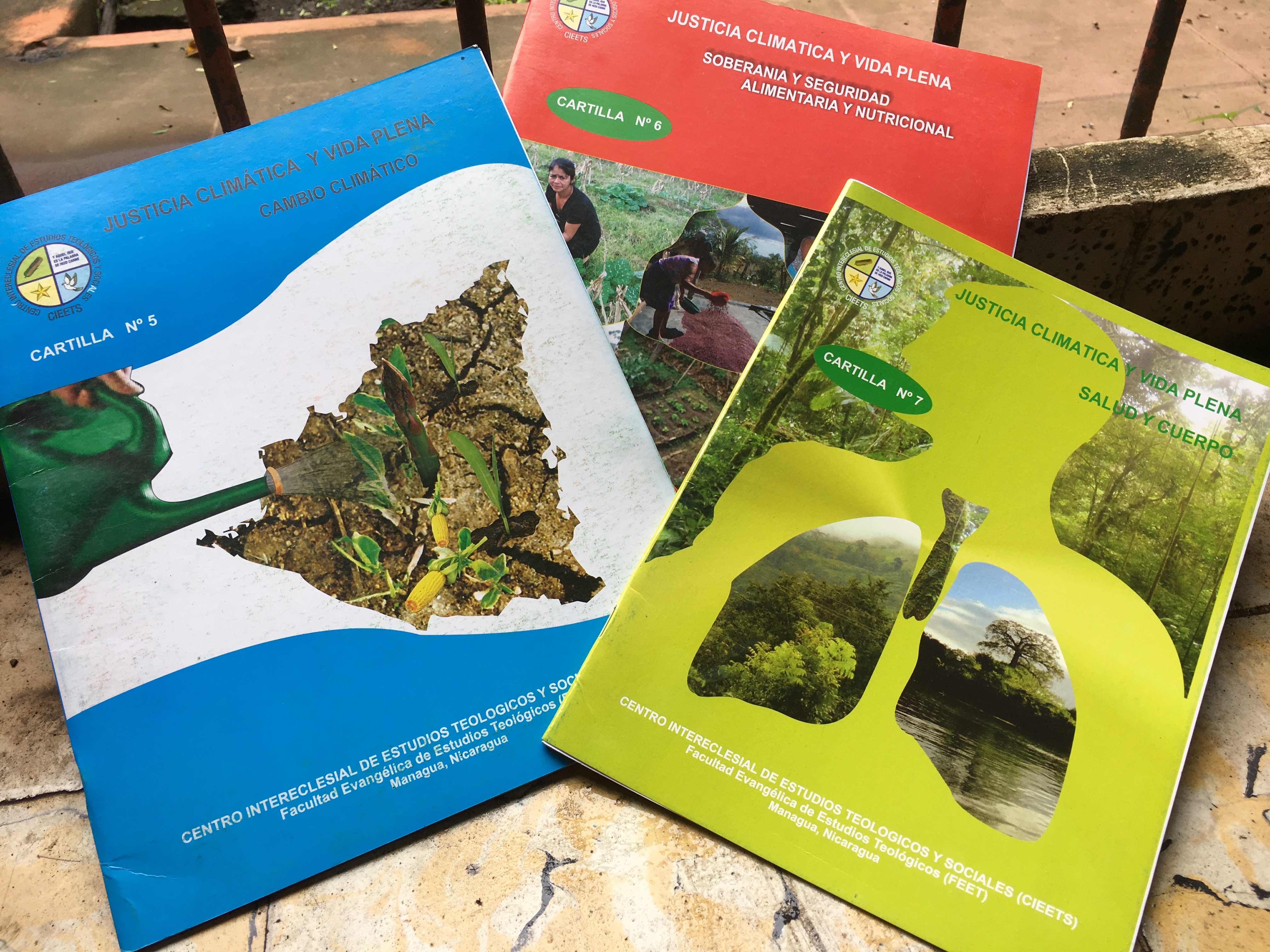A letter from Tracey King-Ortega, regional liaison for Central America, based in Nicaragua
October 2017
Write to Tracey King-Ortega
Individuals: Give online to E200518 for Tracey King-Ortega’s sending and support
Congregations: Give to D507539 for Tracey King-Ortega’s sending and support
Churches are asked to send donations through your congregation’s normal receiving site (this is usually your presbytery).
Our partners throughout Central America know the importance of talking about climate change. No one questions its existence because they already are suffering the effects. In El Salvador and Nicaragua, our partners are training communities in farming techniques that will make the communities more resilient in the face of climate change. These are communities who have suffered drought and crop loss every year for the past three to four years. The cycles of planting and harvesting have changed, and they can no longer rely on their traditional farming practices for subsistence living because the climate has changed.
What strikes me about this is that I’ve been hesitant to share these stories because, from a distance, I see how politicized climate change has become in the United States. I don’t want my simple mission newsletter to be a source of controversy. I do, however, want to share with you the testimony of our partners because I think we can learn a lot. I think we need to understand better what is happening in the rest of the world, with the hope that it may transform how we act. Whether we are aware of it or not, our actions and policies are affecting the rest of the planet. So maybe I do want to be controversial, but it is because our partners are teaching me that talking about climate change and the ways we interact with the planet are closely tied to our Christian calling.
In Nicaragua, CIEETS (the Inter-Church Center for Theological and Social Studies) has produced a series of workbooks used in community leadership trainings. Nearly half of the series addresses “climate justice and the fullness of life.” Rooted in scripture and an analysis of current realities, these workbooks prepare leaders to work for the betterment of their communities. Reflecting together, community members ask, “What has happened to the home that God has given us?” Tangible signs of changes in climate patterns that affect their farming capabilities are identified. They then work together to come up with a list of actions they can take as a community in the face of climate change.
CIEETS is striving to live out a new kind of evangelism that doesn’t only focus on the spiritual and the soul, but takes into consideration the whole person AND the world around us. God wants fullness of life for all of creation, and this means that we must be good stewards of all that God has entrusted us with. It is up to us to work on meeting the most basic needs of all God’s children and to care for God’s creation, which necessarily includes the natural world.
CEPAD (the Council of Protestant Churches of Nicaragua) works with small farmers to increase food production, improve economies, and protect natural resources. They promote organic techniques by training producers to make their own fertilizer, diversify crops, avoid chemical pesticides and use water efficiently, who then in turn teach those techniques to their neighbors. Mario Espinoza Videa of the community of Bramadero #1 in the region of Pantasma, who traditionally only produced corn, beans and sorghum, has been participating in CEPAD training programs. He is proud to share that he is now harvesting 12 different types of food. He says, “Before I only harvested three, and we still are not harvesting fruit from the trees that are still in the beginning stages of production. My wife now knows how to cook with local foods and to take advantage of what we produce in our plot. My family now eats more nutritious and healthy foods, which has improved our health because we have more knowledge about food and nutrition.” Not only is this family better off because of the change in farming practices, but they are now more resilient to the effects climate change is having on their communities. Conservation methods that CEPAD teaches to a handful of farmers is knowledge that is put into practice and replicated by others, in turn protecting soil and water sources, which leaves the whole community stronger in the face of climate change.
The Latin American Biblical University (UBL) in Costa Rica is also very aware of the impacts that climate change is having and is working to sensitize Christians to the importance of countering the devastation we have brought to the environment. Recently they published a translation, adapted to the Latin American context, of Ched Myers’ book “Watershed Discipleship.” In an introduction to the book, Karla Koll, PC(USA) mission co-worker and professor at the UBL, writes that the institution “has identified planetary life as a fundamental axis of [their] theological and educational work.” With this publication, they are offering “churches and faith communities a biblical and theological framework to rethink their faith and practice within their location in a specific hydrographical basin. It is an invitation to take seriously the topography of creation and express its love for the Creator through concrete actions to heal and defend the water sources that give life to our communities.”
Taking climate change seriously and reversing the ways we damage the environment are integral to living faithfully. Our partners in mission in Central America are acutely aware of this because the evidence is clear that those in the developing world are most vulnerable to and least protected from the effects of climate change. We in the developing nations who contribute disproportionately more to the human-caused impact on the environment need to learn from their example. We in the global north need to be evangelized to by our southern neighbors and wake up to what is happening to God’s creation. It is a timely discussion: let’s hope it isn’t too late. Climate change may not be responsible for the hurricanes we’ve seen this year, but many attribute the unprecedented destructive nature of this year’s hurricanes to warmer waters brought about by climate change.
There is hope and concrete action we can take. Check out Rebecca Barnes book “50 Ways to Help Save the Earth: How You and Your Church Can Make a Difference.” Consider becoming an Earth Care Congregation: presbyterianmission.org/ministries/environment/earth-care-congregations/. Let us learn from the example of our international partners who are suffering the impacts of environmental degradation but also making changes to better care for creation and their communities. Let us not shy away from these important conversations. God has entrusted us with the planet earth. If we are to care for our brothers and sisters, we must also care for the environment, for the two are intricately related.
I am so blessed to be challenged by the Central American context that opens my eyes to what is really happening in the world. It is this living faith and testimony of our partners that teaches me how to be more faithful each and every day. My desire is to share this blessing and challenge with you all. Thank you for your support and I invite you to continue supporting me in the ways that I try to be present with our partners throughout the region. Your voice, your daily living, your financial contributions, and your prayers are most welcome. Together, and by the Grace of God, we will continue to transform this world in which we live.
The earth is the LORD’s and all that is in it, the world, and those who live in it. Psalm 24:1
Blessings and peace,
Tracey
Please read this important message from Jose Luis Casal, Director, Presbyterian World Mission
Dear Friend of Presbyterian Mission,
What a joy to send this letter! As Presbyterian World Mission’s new director, I thank God for your faithful support of our mission co-workers. The enclosed newsletter celebrates the work you made possible by your prayers, engagement, and generous financial gifts. We can’t thank you enough.
After I began in April, I met with mission co-workers and global partners and was blessed to see firsthand the mighty ways God is working through them! Our global partners are asking us to help them move forward with life-changing ministries. Because of your support, we can say “yes” to these creative and exciting initiatives.
I write to invite you to make an even deeper commitment to this work. First, would you make a year-end gift for the sending and support of our mission co-workers? We need your gifts to end the year strong. With your help, we filled two new mission co-worker positions and plan to recruit for others. The needs in the world are great, and World Mission is poised to answer the call to serve.
Second, would you ask your session to add our mission co-workers to your congregation’s mission budget for 2018 and beyond? Our mission co-workers serve three-year or four-year terms. Your multi-year commitment will encourage them greatly.
Our mission co-workers are funded entirely from the special gifts of individuals and congregations like yours. Now more than ever, we need your financial support.
In faith, our mission co-workers accepted a call to mission service. In faith, World Mission sent them to work with our global partners. In faith, will you also commit to support this work with your prayers and financial gifts?
With gratitude,
Jose Luis Casal
Director
P.S. Your gift will help meet critical needs of our global partners. Thank you!
![]() You may freely reuse and distribute this article in its entirety for non-commercial purposes in any medium. Please include author attribution, photography credits, and a link to the original article. This work is licensed under a Creative Commons Attribution-NonCommercial-NoDeratives 4.0 International License.
You may freely reuse and distribute this article in its entirety for non-commercial purposes in any medium. Please include author attribution, photography credits, and a link to the original article. This work is licensed under a Creative Commons Attribution-NonCommercial-NoDeratives 4.0 International License.
